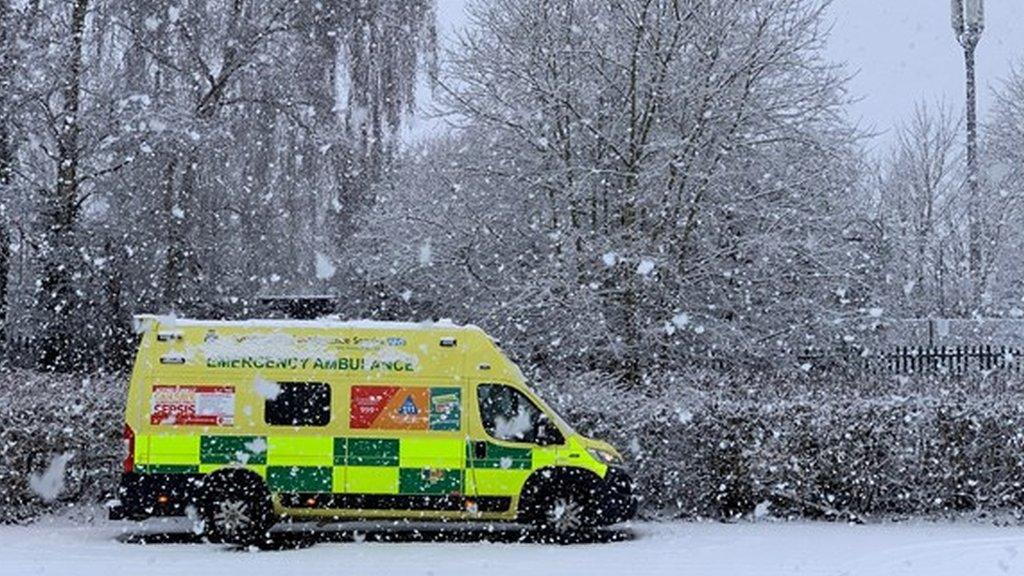Behind the scenes with stretched South Central Ambulance Service
- Published
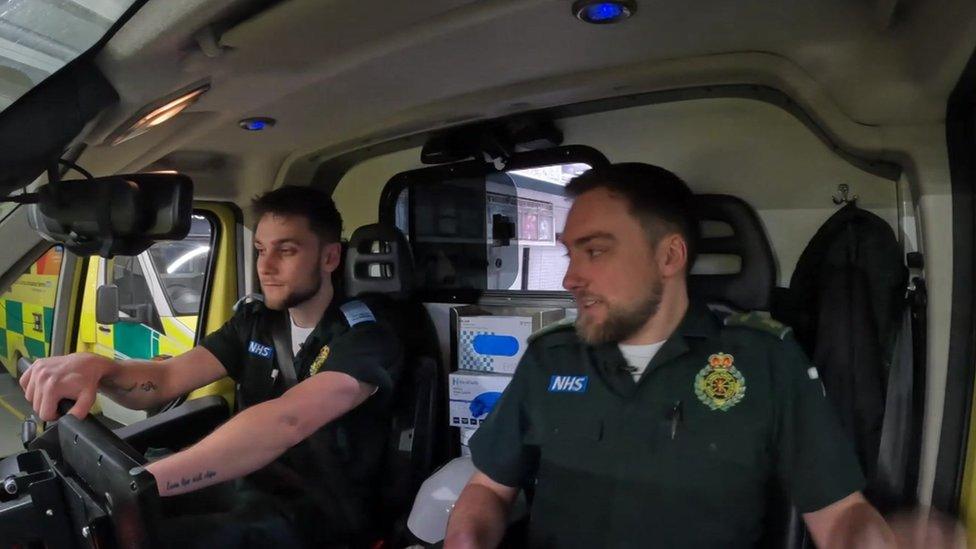
The BBC joined student paramedic Andy Payne (left) and paramedic Andy Morris for the day
There has been a steep rise in patients requiring an ambulance in the south of England in the past five years, according to the latest NHS figures.
Seriously ill people needing help in Hampshire, Oxfordshire, Berkshire and Buckinghamshire rose from 30,748 in 2018-2019 to 41,348 in 2022-2023.
It represents a rise of 34% in the most serious Category 1 calls.
The demand for all categories of calls is so great that no ambulance trust in England is meeting its targets.
Student paramedic Andy Payne, who works for South Central Ambulance Service (SCAS) which covers the four counties, described a good day as "any day when you get to do something that genuinely helps someone", but added "a bad day is a day predominantly spent queueing".
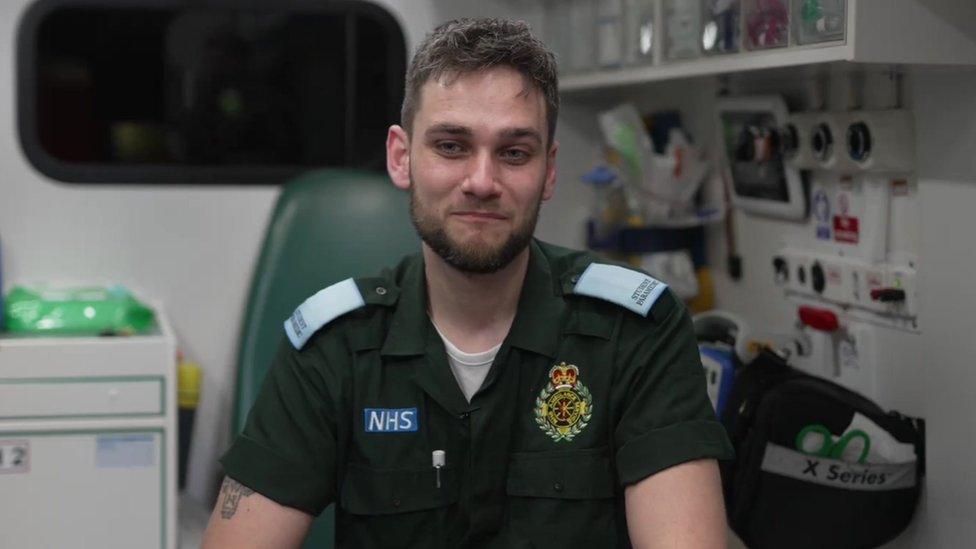
Student paramedic Mr Payne said it was a good day when they could genuinely help a patient
He said while the winter months were always busier, "this year has been particularly busy".
"I don't think there's one straight answer to why, I think it's a big combination of factors," he explained.
Paramedic Andy Morris said it could be "frustrating at times", particularly when going to a patient who has waited a significant amount of time.
'Rock and a hard place'
"We're entering the door and the first thing we're saying is 'sorry it's taken so long'. They're always pleased to see us but you do feel like you're letting them down a little bit," he said.
The BBC joined a SCAS crew for the day in which they were called to a patient in Berkshire who had been on the floor of her home for about three hours. The target time for responding to this type of call is within two hours.
Mr Payne said: "It's a rock and a hard place, definitely. We get allocated these [cases] when they've been in [the system] for an hour and then we get half an hour [away] from the address and we get stood down."
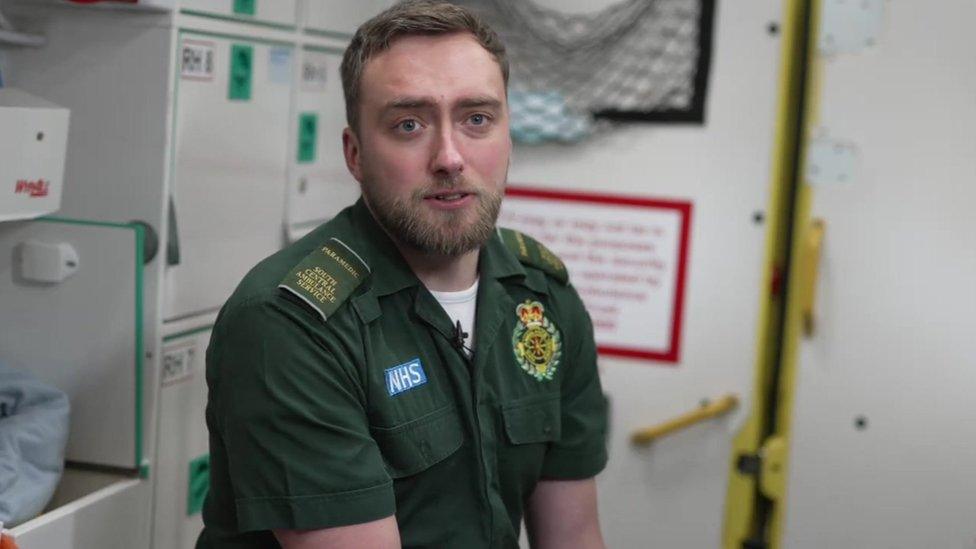
Paramedic Mr Morris said the delays in reaching patients could be frustrating
After being diverted four times, the crew eventually reached the patient and were able to assess her. Happily, she did not need to be admitted to A&E.
SCAS said it has seen a steep increase in the volume of life-threatening call-outs which have a target response time of seven minutes.
Mr Morris said more hospitals, staff and vehicles would reduce the pressure, adding: "In terms of what would take the pressure off ourselves [ambulance crews], is if people would use us appropriately."
On the day the BBC spent with SCAS, the service received 2,217 emergency 999 calls and 1,399 patients - ranging from Category 1 to 4 - were taken to A&E.
Despite the difficulties, Mr Payne said he could not imagine doing anything else.
"I can say, at age 30, there have been occasions when I've genuinely made a difference to people's lives, been part of a team that's saved a life or helped someone in what is their lowest most frightening moment. That's quite something to be able to say," he added.
A Department of Health and Social Care spokesperson said: "There are record numbers of staff working in the NHS and our historic Long Term Workforce Plan, backed by over £2.4 billion, will train, retain, and recruit hundreds of thousands more staff - including boosting the number of paramedics by up to 15,600.
"Our work... is helping to improve ambulance response times with average Category 1 and Category 2 response times this year to date significantly quicker compared to last year.
"We have already created 5,000 extra permanent hospital beds, on top of 10,000 hospital at home beds rolled out - to free up hospital capacity and cut waiting times."

Follow BBC South on Facebook, external, X, external, or Instagram, external. Send your story ideas to south.newsonline@bbc.co.uk or via WhatsApp on 0808 100 2240.
- Published25 January 2024
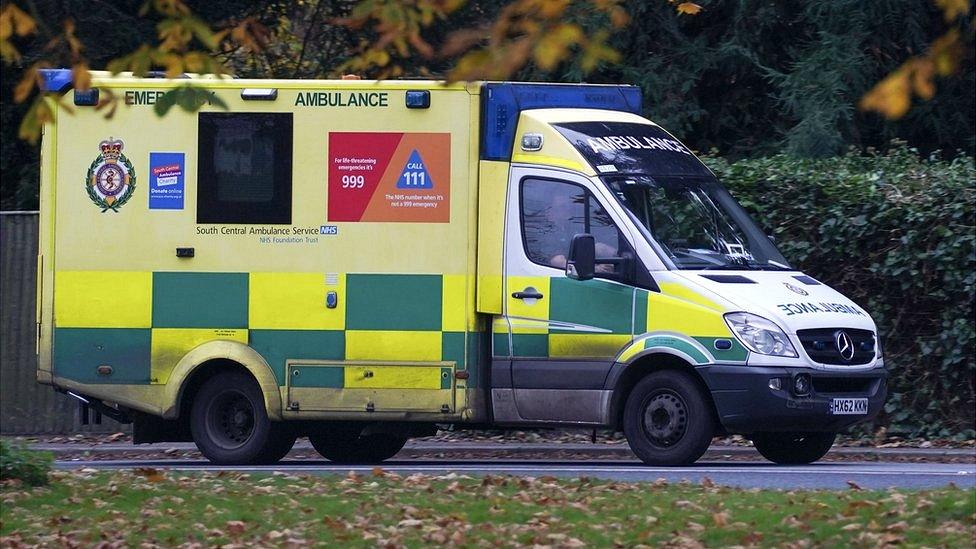
- Published27 November 2023
